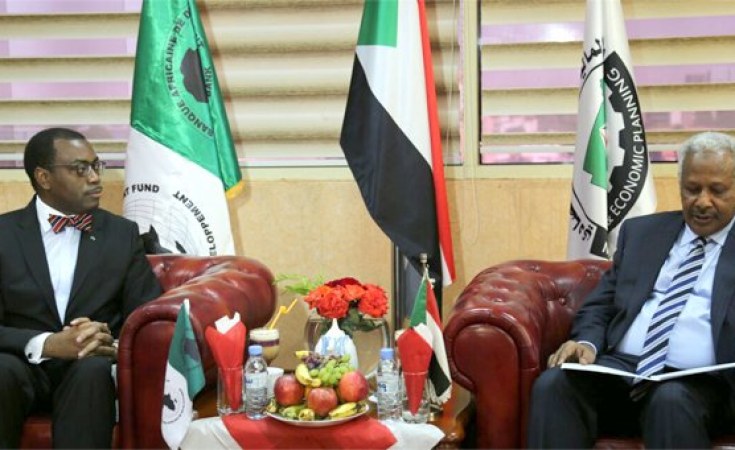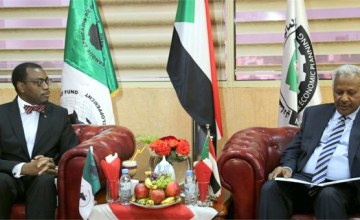On Tuesday, February 27, 2017, Akinwumi Adesina, President of the African Development Bank (AfDB), visited Garri Power Station located in Khartoum and discussed the Government of Sudan's planned power interconnection project that is to boost electricity supply in Sudan by 3,750 MW. The Bank President was joined by the Executive Director (ED) Kwabena Boadu Oku-Afari, representing Sudan at the AfDB; the Bank's Director General for East Africa, Gabriel Negatu; and the Country Manager for Sudan, Abdul Kamara.
The President toured the power station and held a meeting with its management while accompanied by Mustapha Holi, Undersecretary of Planning, and Abdalla Ali Ibrahim, Undersecretary of International Cooperation, both of the Ministry of Finance and Economic Planning.
The Garri power plant, which was established in 1960, has a generation capacity of 1,745 MW and uses hydropower to generate 40% of its electricity supply, while the rest is through thermal. An additional thermal project with a capacity of 3,750 MW is planned for execution in the next five years. The other power projects include the Port Sudan hydro plant with a capacity of 1,500 MW, whose phase one was supported by the Arab Bank for Economic Development in Africa.
The Government is sourcing funds to support phase two of this project, which is thermal. The feasibility study of the project is ongoing. The meeting also highlighted the planned rural electrification program, which aims to install 1.1 million 50- to 200-watt solar home systems during the period 2015-2030. The project is expected to benefit 5.5 million people.
The meeting also explored a feasibility study for Ethiopia-Sudan extra voltage power interconnection system using the Blue Nile Energy Corridor. The project, which is budgeted to cost US $566 million is envisaged to promote the economic development of both Sudan and Ethiopia. There is an additional cost of US $350 million required to develop a Khartoum power ring of 500 Kv.
The President recognized the achievements made by the Government of Sudan in its bid to meet the energy and power requirements despite the economic sanctions that were just recently removed. He noted that this is creates a solid foundation for Sudan to roll out the High 5s on energy (Light up and power Africa), once the country addresses its external debt constraint and normalizes relations with the Bank. He congratulated the efforts and took note of the request for support to the energy sector, and encouraged the Government to explore possible private sector engagement especially in power distribution.



